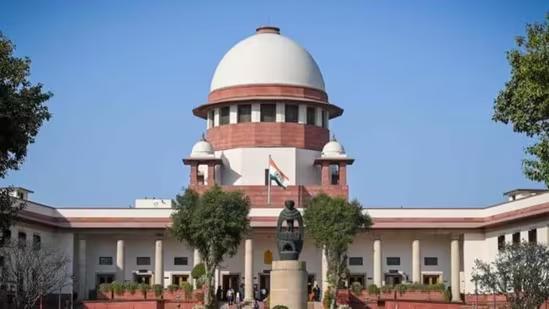
Court can’t grant assent to bills, only Guv & Prez can: Maha to SC
In a significant development in the ongoing debate over the role of courts in the legislative process, the Maharashtra government has argued in the Supreme Court that courts cannot accord assent to bills and only the Governor and President have the power to do so. This statement was made by Senior Advocate Harish Salve, representing Maharashtra, during a hearing on the presidential reference on whether the court could impose timelines for the Governor and President to deal with bills passed by state Assemblies.
The debate surrounding the role of courts in the legislative process has been ongoing for some time, with many arguing that the judiciary should not interfere in the functioning of the legislature. The Maharashtra government’s argument in the Supreme Court is a significant development in this ongoing debate, as it emphasizes the importance of maintaining the institutional separation of powers and the role of the Governor and President as ceremonial heads of state.
The presidential reference was filed by the Centre in 2020, seeking clarification on the scope of judicial review over the Governor’s decision to withhold assent to a bill. The reference was prompted by the Goa Governor’s decision to withhold assent to the Goa Assembly’s decision to pass a bill that would have allowed the state government to appoint the Chief Justice of the High Court.
The Maharashtra government’s argument in the Supreme Court is based on the Constitution’s scheme of division of powers between the legislature, the executive, and the judiciary. According to the government, the power to accord assent to a bill lies with the Governor and the President, and not with the courts. The government argued that courts do not have the power to interfere in the legislative process by imposing timelines for the Governor and President to deal with bills.
Salve, representing Maharashtra, emphasized that the Governor and President have the power to exercise their discretion in a manner that is consistent with the Constitution. He argued that the courts should not interfere in the exercise of this discretion, as it would compromise the institutional separation of powers and undermine the integrity of the legislative process.
The Maharashtra government’s argument is in line with the views of many legal experts and scholars who have argued that courts should not interfere in the legislative process. According to these experts, the judiciary should focus on interpreting the law and resolving disputes, rather than trying to interfere in the functioning of the legislature.
The Centre’s move to seek a presidential reference on this issue has been widely criticized by many legal experts and scholars, who argue that it is an attempt to undermine the independence of the judiciary and compromise the institutional separation of powers. The Centre’s move has been seen as an attempt to curb the powers of the judiciary and ensure that the executive and legislative branches have the upper hand in the functioning of the government.
The hearing on the presidential reference is expected to continue in the coming weeks, with the Supreme Court likely to issue a verdict in the near future. The verdict is expected to have significant implications for the functioning of the legislative process and the role of the judiciary in the country.
In conclusion, the Maharashtra government’s argument in the Supreme Court that courts cannot accord assent to bills and only the Governor and President have that power is a significant development in the ongoing debate over the role of courts in the legislative process. The government’s argument emphasizes the importance of maintaining the institutional separation of powers and the role of the Governor and President as ceremonial heads of state.






